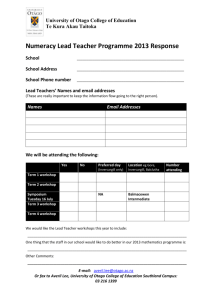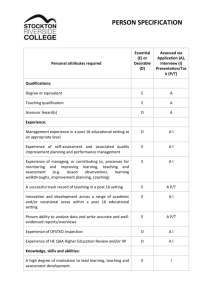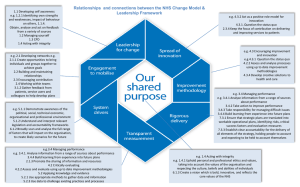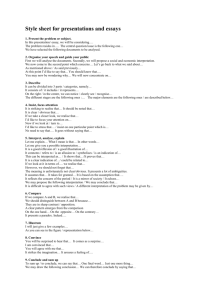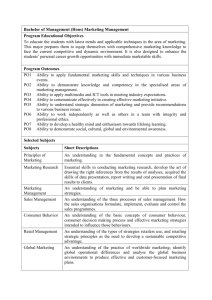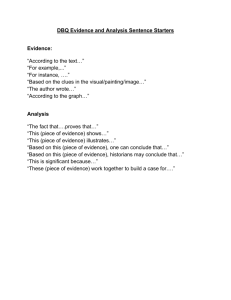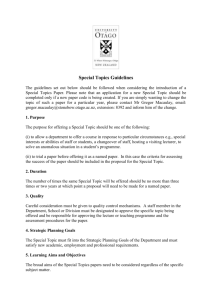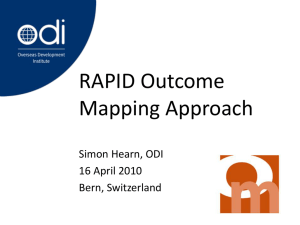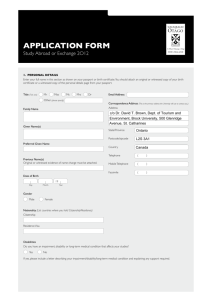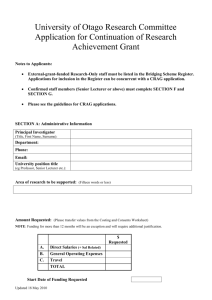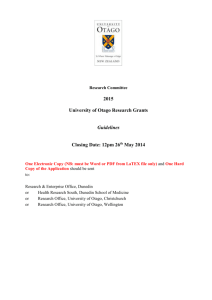Examples of verbs for course design - HEDC
advertisement
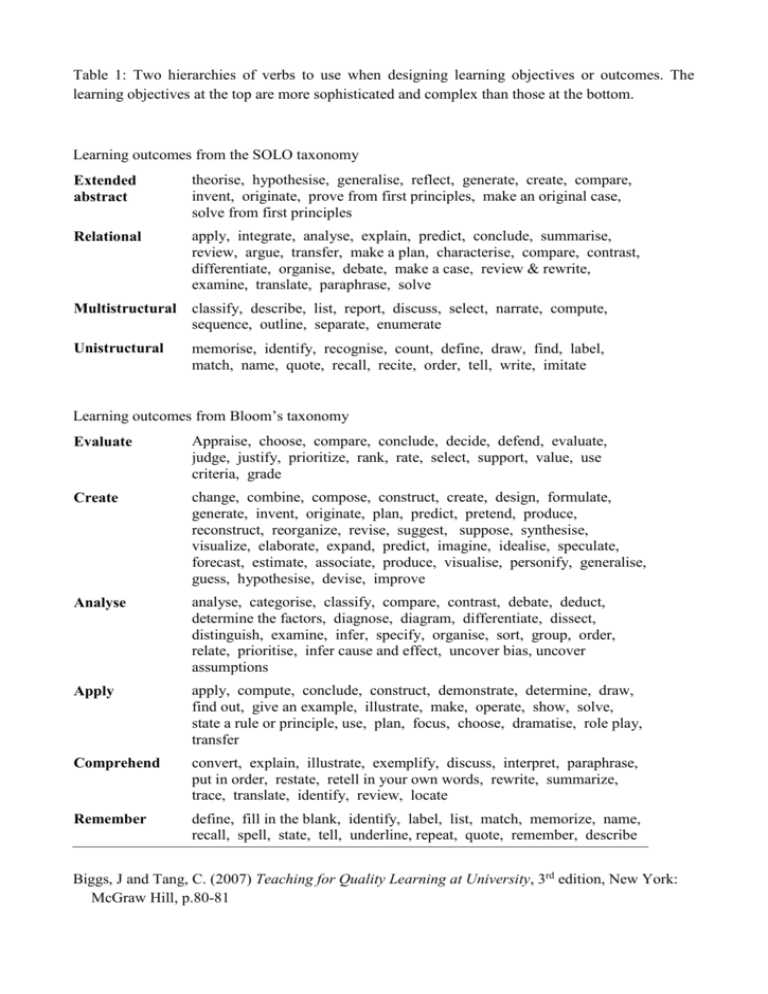
Table 1: Two hierarchies of verbs to use when designing learning objectives or outcomes. The learning objectives at the top are more sophisticated and complex than those at the bottom. Learning outcomes from the SOLO taxonomy Extended abstract theorise, hypothesise, generalise, reflect, generate, create, compare, invent, originate, prove from first principles, make an original case, solve from first principles Relational apply, integrate, analyse, explain, predict, conclude, summarise, review, argue, transfer, make a plan, characterise, compare, contrast, differentiate, organise, debate, make a case, review & rewrite, examine, translate, paraphrase, solve Multistructural classify, describe, list, report, discuss, select, narrate, compute, sequence, outline, separate, enumerate Unistructural memorise, identify, recognise, count, define, draw, find, label, match, name, quote, recall, recite, order, tell, write, imitate Learning outcomes from Bloom’s taxonomy Evaluate Appraise, choose, compare, conclude, decide, defend, evaluate, judge, justify, prioritize, rank, rate, select, support, value, use criteria, grade Create change, combine, compose, construct, create, design, formulate, generate, invent, originate, plan, predict, pretend, produce, reconstruct, reorganize, revise, suggest, suppose, synthesise, visualize, elaborate, expand, predict, imagine, idealise, speculate, forecast, estimate, associate, produce, visualise, personify, generalise, guess, hypothesise, devise, improve Analyse analyse, categorise, classify, compare, contrast, debate, deduct, determine the factors, diagnose, diagram, differentiate, dissect, distinguish, examine, infer, specify, organise, sort, group, order, relate, prioritise, infer cause and effect, uncover bias, uncover assumptions Apply apply, compute, conclude, construct, demonstrate, determine, draw, find out, give an example, illustrate, make, operate, show, solve, state a rule or principle, use, plan, focus, choose, dramatise, role play, transfer Comprehend convert, explain, illustrate, exemplify, discuss, interpret, paraphrase, put in order, restate, retell in your own words, rewrite, summarize, trace, translate, identify, review, locate Remember define, fill in the blank, identify, label, list, match, memorize, name, recall, spell, state, tell, underline, repeat, quote, remember, describe Biggs, J and Tang, C. (2007) Teaching for Quality Learning at University, 3rd edition, New York: McGraw Hill, p.80-81 The Otago Graduate Profile Another useful guide for designing learning objectives. All University of Otago graduates will possess a deep, coherent and extensive knowledge of at least one discipline, coupled with knowledge of the fundamental contribution of research to this discipline. In addition, all Otago graduates will possess, to varying degrees, the following sets of attributes. These attributes involve substantial affective elements: • GLOBAL PERSPECTIVE: Appreciation of global perspectives in the chosen discipline(s) and the nature of global citizenship • INTERDISCIPLINARY PERSPECTIVE: Commitment to intellectual openness and curiosity, and the awareness of the limits of current knowledge and of the links amongst disciplines • LIFELONG LEARNING: Commitment to the on-going acquisition of new knowledge and new skills, and an ability to apply these to an ever- changing environment • SCHOLARSHIP: Commitment to the fundamental importance of the acquisition and development of knowledge and understanding These attributes include those most often sought by employers: • COMMUNICATION: Ability to communicate information, arguments and analyses effectively, both orally and in writing • CRITICAL THINKING: Ability to analyse issues logically, to challenge conventional assumptions, to consider different options and viewpoints, make informed decisions and act with flexibility, adaptability and creativity • CULTURAL UNDERSTANDING: Knowledge and appreciation of biculturalism within the framework of the Treaty of Waitangi; knowledge and appreciation of multiculturalism; and an ability to apply such knowledge in a culturally appropriate manner. • ETHICS: Knowledge of ethics and ethical standards and an ability to apply these with a sense of responsibility within the workplace and community • ENVIRONMENTAL LITERACY: Basic understanding of the principles that govern natural systems, the effects of human activity on these systems, and the cultures and economies that interact with those systems • INFORMATION LITERACY: Ability to apply specific skills in acquiring, organising, analysing, evaluating and presenting information, in particular recognising the increasing prominence of digital-based activity • RESEARCH: Ability to conduct research by recognising when information is needed, and locating, retrieving, evaluating and using it effectively • SELF-MOTIVATION: Capacity for self-directed activity and the ability to work independently • TEAMWORK: Ability to work effectively as both a team leader and a team member
